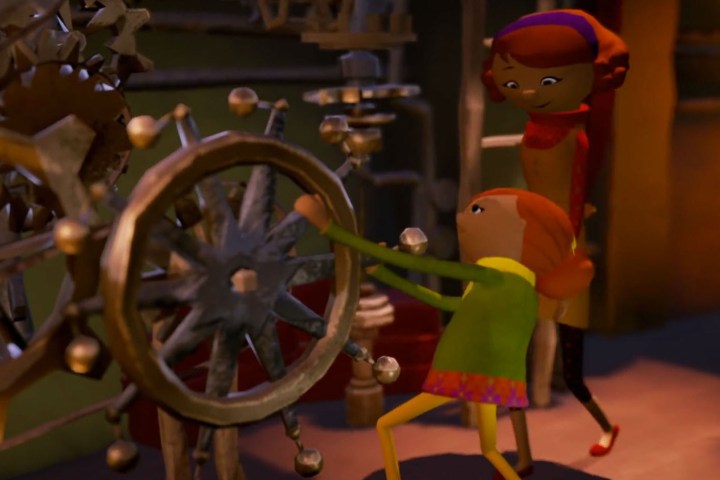
One recent title that aims to leverage VR is Allumette, a 20-minute animated tale about an orphan girl and her adventures in a floating village, which was recently reviewed by Road To VR. Produced by Penrose Studios, the VR feature was released on Thursday to three VR systems: Oculus Rift, HTC Vive, and Sony’s PlayStation VR.
Films created for VR promise to go beyond the mere titillation represented by many 3D titles, which tend to focus on objects flying shockingly toward the viewer. Rather, with VR, the viewer’s experience is not simply aimed at showing a realistic representation of what is in front but rather what is surrounding the viewer. In a well-made VR film, a viewer should be truly immersed in the virtual world in which the story is playing out.
According to the reviews, Allumette accomplishes the sort of immersion that holds such promise for VR. The viewer is placed smack in the middle of the floating village that sets the stage for the story about a young girl and her mother as the lesson of kindness is passed along. At the same time, the action is somewhat limited to a single area. While there is something to look at if you turn your head, you will not find yourself getting dragged away from the story.
Those are the positives. From a technical perspective, the negatives involve the claymation method of animation that results in a jumpy, low-framerate experience as opposed to the sort of smooth 90-frames-per-second motion that VR users tend to expect. The reviewers noted the film seemed to stutter or that “the characters were running in slow motion.”
In terms of how well Allumette stacks up as a story, the reviewers note that given the nature of VR movies, which tend toward shorter pieces, developing a character and plot are understandably difficult. In this respect, Allumette falls short. Overall, the VR title received a positive review, generally showing off what VR is capable of for storytelling but nevertheless leaving the viewer disconnected from the characters.
Allumette seems like it is worth its investment of 20 minutes or so. If it is not the best movie in and of itself, it is nevertheless a good indication that VR filmmaking has some potential.
Editors' Recommendations
- You can now high-five in VR
- How to build a cheap VR-ready PC
- Oculus Rift vs. HTC Vive
- With new swappable faceplates, the Vive Cosmos is now a modular VR platform
- I fell out of love with VR, but the Vive Wireless rekindled the flame


